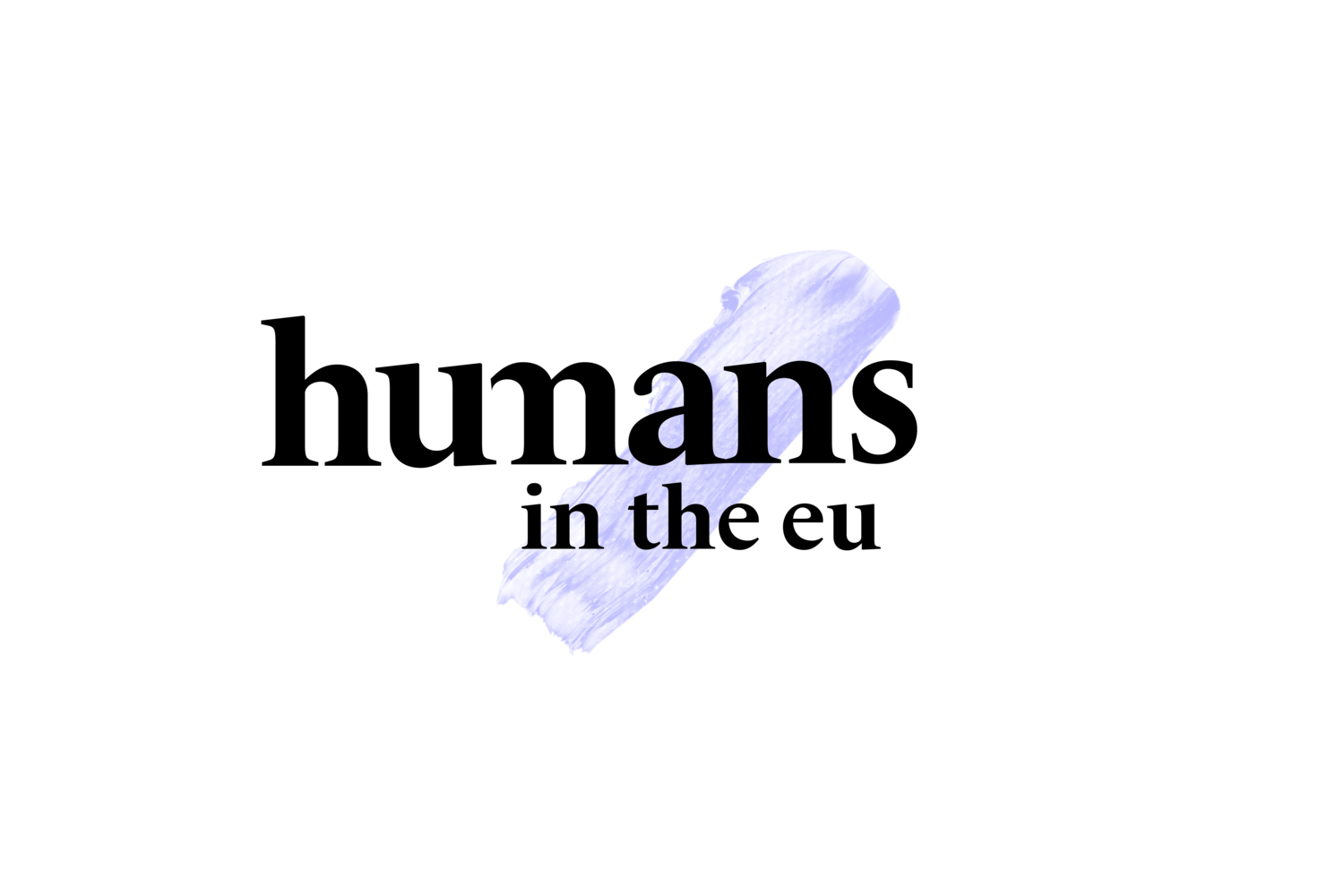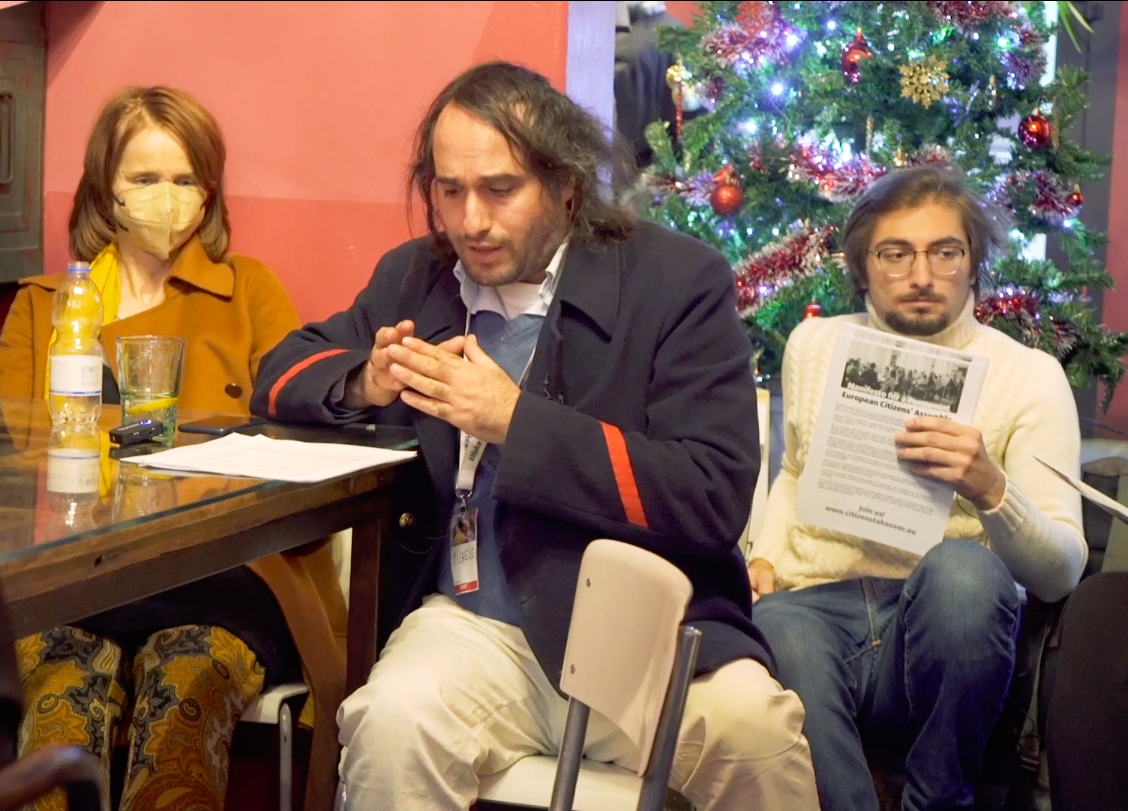Ideas on the Future of Europe
“This is the flagship for participatory democracy. If this gets a bad name we have to wait another 10 years to get a more deliberative and participatory democracy”
Emma (to the left)
On December 9th, an assembly was organised by the Citizens Take Over Europe coalition in Florence, in the framework of the Conference on the Future of Europe. Humans in the EU was present to cover its highlights! The initiative was led by Professor Kalypso Nicolaidis, Chair in International Affairs at the STG, together with Niccolo Milanese, founding Director of European Alternatives and Alberto Alemanno, Professor of Law at HEC Paris. It also featured a youth branch, the Young EUI Democracy Forum (YEDF), that worked alongside the Forum.
Several recommendations were made throughout the conference, one of them being the establishment of the citizens’ assemblies as a new institution in the legal framework of the European Union, ensuring that citizens of the Union can be heard and are able to give their opinion regarding European politics. The recommendations were made in order to create a more inclusive and participatory Europe, where minorities and those who feel left out in European Politics to be heard.
“At the beginning, it all was very strange. Understanding how and when to vote. But then it became really great, and we felt really listened to”
Emma was one of the young Europeans randomly chosen to participate in the conference. Voices like that of Emma are important for the construction of a better Europe. Throughout the conference many more voices were heard, all in order to help build a better Europe.
Professor Kalypso
“This is the flagship for participatory democracy. If this gets a bad name we have to wait another 10 years to get a more deliberative and participatory democracy. So it is in our ‘Kantian Obligation’ to promote and to be cheerleaders for what happened this weekend. But at the same time, we are all analytical, we are critical, we are activists”
Professor Kalypso’s words that should resonate with European leaders, since the future of Europe is being discussed in such conferences.
Creating a more inclusive Europe takes time, through the randomly selected citizens panel we can observe a new dimension in democratic participation, a more inclusive one. Thus, such events need to be promoted, however, much like Professor Kalypso says, we still need to be analytical and critical regarding the conference, for if it goes wrong we might have to wait another 10 years to achieve what we are achieving today.
Lorenzo
“It has to go in all the countries of Europe. Not only in big cities like Florence but also in smaller ones, because it’s there where Europe is felt very very distant”
Lorenzo.
It is important to include those who are left out, however, we cannot forget the places that are left out in European Politics. As Lorenzo said, Europe is not only in big cities like Florence, small cities are also extremely important, perhaps it is even more important that they receive such conferences, because it is in such small places that Europe feels more distant.
Michele (in the middle)
“The interesting thing is the last citizens’ recommendation of the 42 that were voted on today, all were approved apart from 3. The interesting thing was the last one: ‘We recommend that the European Union holds Citizens Assemblies’. So something is moving. So we are part of an historical experiment where the experiment says ‘we should continue this experiment’ ”
says Michele regarding the propositions made by the citizens.
Samuele (to the right)
“As randomly selected participants, we feel a great responsibility. Of course, there are often arguments between the citizens who participate. Because we really hope and want that our work will be applied. This is something we can only know at the end of the event”
Samuele.
To all of those who have participated as randomly selected citizens, one thing becomes clear, the desire to have their voice heard. Everyone wants the event to go well and everyone wants a citizens assembly in the legal framework of the European Union. People like Samuele, show us that debates regarding Europe’s future can also be held amongst the “regular” people.
“I think if we focus this battle purely on the European level, I think we are going to lose it. Because the European Level is far too remote for most people. It will not create the kind of engagement that is necessary. I think this battle can be won if it becomes a universal battle. To have an alternative democracy at every level”
unknown.
Zach
“Everyone that I have seen, I haven’t seen many minorities. I haven’t seen a single Arab-European. I refuse to believe that there is not a single Arab in Europe. The interesting thing is the ability of citizens to reappropriate spaces. For example, the church that we had we turned it into an assembly. This is a café and now we are discussing the future of Europe.”
Zach.
The battle for democracy cannot be won only at a European level. Europe was not built only by Europeans, nor was it built only for them. Cultures from all over the world helped build this Union. This battle needs to be taken to a universal scale and minorities need to be better represented, because they are part of Europe. This battle doesn’t need to only be fought in big Parliaments, it can be fought on smaller stages as well, “This is a café and now we are discussing the future of Europe”.
The goal of the conference was to create a more inclusive Europe, through a series of recommendations to European policy makers. Thus marking the end of the Citizens Take Over Europe. Many recommendations made by the assembly were taken into account, with some failing and some being approved. From the end of the conference, we can be sure that the voice of the people is important and needs to be heard.
Organised by Citizens Take Over Europe.
This story includes videos, check them out on the social media to Humans in the EU: Facebook | Instagram | Twitter







